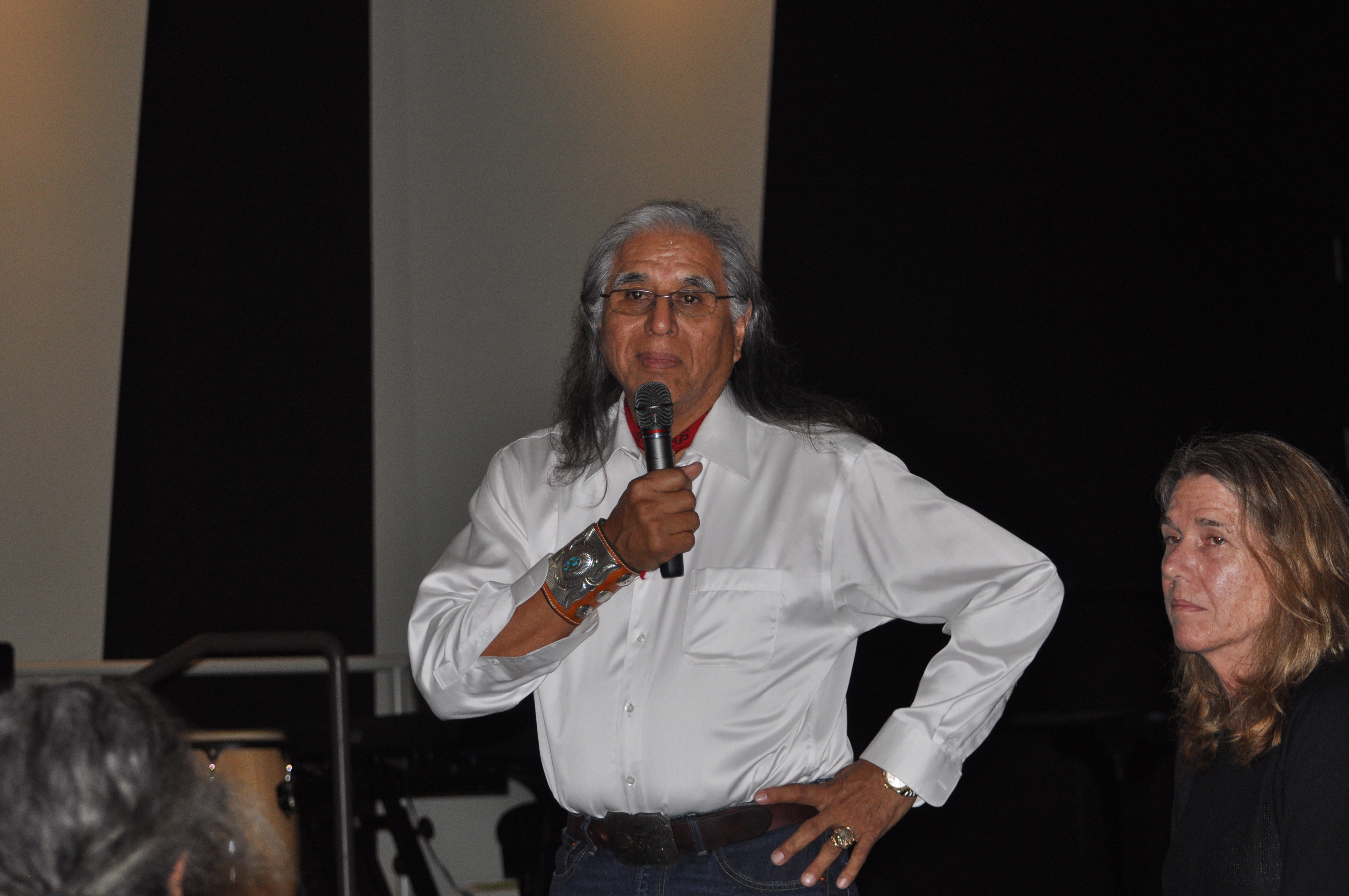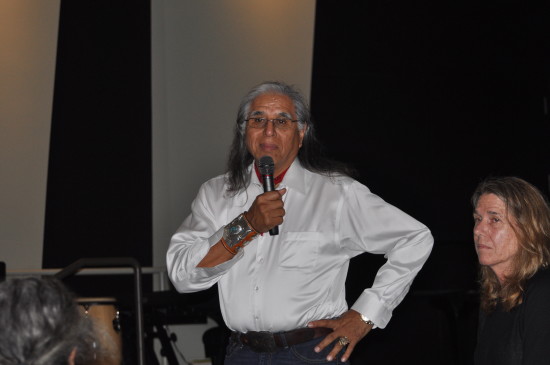
By Kriska Obermiller
“I experienced my own Trail of Tears when I was a young girl. No one pointed a gun at me or at members of my family. No show of force was used. It was not necessary. Nevertheless, the United States government, through the Bureau of Indian Affairs, was again trying to settle the ‘Indian problem’ by removal. I learned through this ordeal about the fear and anguish that occur when you give up your home, your community, and everything you have ever known, to move far away to a strange place. I cried for days, not unlike the children who had stumbled down the Trail of Tears so many years before. I wept tears … tears from my history, from my tribe’s past. They were Cherokee tears,” – Wilma Mankiller

The story of Wilma Pearl Mankiller, told in the film “Cherokee Word for Water,” was shown recently in four Olympic Peninsula communities.
On Tuesday, Jan 26, students and community members filled the Maier Performance Hall at Peninsula College. Afterwards, the producer Charlie Soap, Mankillers husband, and co-producer Kristina Kiehl, were available for questions from the audience.
Mankiller became the first female Cherokee Chief after she completed the underground water line project with the Bell community. Mankiller returned to Bell, Oklahoma, where she helped raise money to put in a water line for the rural community. Through bake sales, money earned provided for the water pipeline to connect to the adjacent white property owners. Working with the Bureau of Indian Affairs, Mankiller raised money for the water pipeline.
“The tour was spectacular and exceeded the impact and with the involvement then we expected. Many people attended more than one showing,” Janette Force, executive director of the Port Townsend Film Festival co-sponsored the screening saying that it, “Far exceeded our expectations for the turn out. The chance to meet and visit with Charlie Soap”
At the showing in the Jamestown Red Cedar Hall, event coordinator Bonnie Roos, who is also the Jamestown Tribal Librarian, expected 30 patrons, and more than triple the amount showed up. Tribal and community members engaged with Soap and Kiehl afterwards with questions.
“So touched by the film. The film shows how so many tribes have struggled and come together as a community. The film gave an understanding of what you can do when you work as a whole, and set your goals high. It was good to see and understand the struggle with not being a recognized tribe, something the Jamestown tribe has had the comforts of and have taken for granted that we have been recognized,” Elaine Grinnell, Jamestown Tribal Elder.
“Leaders like Wilma Mankiller help inspire to set our goals high and further or desire to educate, and most importantly as a community. I could go on and on,” Grinnell said.
Cathy MacGregor of the Jamestown tribe said, “So inspirational, reminding us all that we all have to work together, We are All one. With one earth, with each other. Regardless of your heritage, there are a lot of people with Native hearts. When you give you get so much back in return.”
The video is available online, www.cw4w.com
